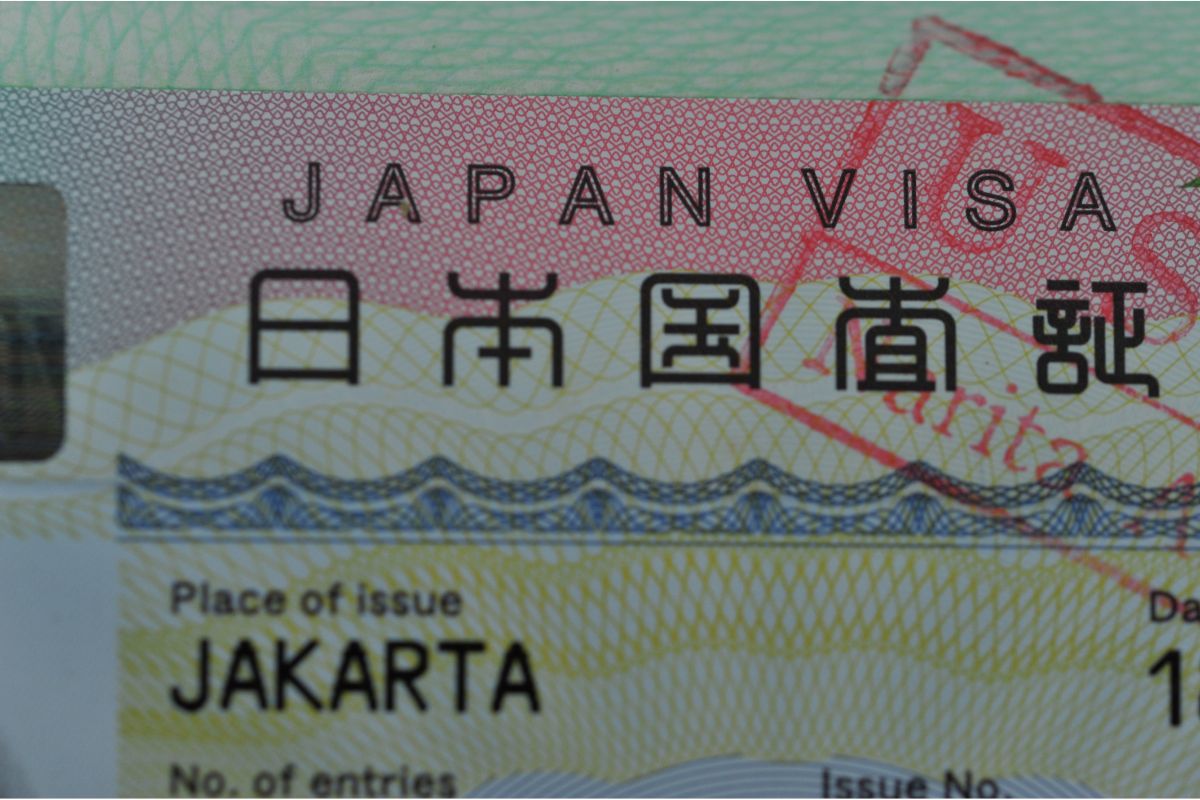Japan is a country rich in history, culture, and a diverse and dynamic atmosphere.
While visitors are able to visit Japan on vacation, if you are planning to visit with the intent to stay and work – you are going to need to make sure that you are applying for a work visa.

Below, we are going to be breaking down the various visas that you can apply for to stay in Japan, as well as what the process is for all of them.
This will help you to understand which one might be best for you, as well as help you understand the process a little more, too.
Let’s start!
What Visas Are Available In Japan?
As we have already mentioned, for non-Japanese natives that wish to enter Japan to work – a visa will be required (see also ‘How Many Types Of Visas Are There In Japan?‘).
To help you understand which visa is going to be the best for you, let’s quickly break down the three different types of visas you can choose from below:
- Standard Work Visa: The first visa you have available for you to apply for is the standard working visa in Japan. This is ideal for a variety of different professions that many people commonly have, such as an entertainer or teachers.
- Working Holiday Visa: The second visa that you can opt to apply for is the working holiday visa within Japan, which has been specifically created for foreign nationals who want to apply for a working holiday agreement with the country of Japan. This will suit anyone wanting to work for the duration of their holiday. However, keep in mind that US citizens are not eligible for this particular visa.
- Highly-Skilled Work Visa: The third work visa that you might be eligible for is the highly-skilled working visa, which is designed for foreign nations who wish to work in Japan within a highly-skilled profession, such as a doctor.
- Tourist Visa: The tourist visa is a short-term stay visa for tourists. The main purpose of this visa is for visiting family/friends and sightseeing. This visa allows you to stay in Japan for up to 30 days.
- Humanities visa: The humanities visa is used by Japan to invite people from foregin countries that work in fields of science and humanities to do work in Japan that requires their expertise.
Along with these main visas most commonly used in Japan, it should also be noted that there are a variety of additional visas suitable for long-term stays, including those that are suitable for those wishing to study or visit family.
As a side note, if you are a student that is hoping to study in Japan, you will be unable to work more than 28 hours per week.
Who Is Eligible For A Visa In Japan?
At the time of writing this article, any foreign national that wishes to enter the country of Japan on a long-term stay will need to make sure that they have the appropriate visa.
Without making sure that the correct visa is in place and active for the duration of your stay in Japan, you might find yourself in hot water.
For example, let’s say that you wanted to visit Japan to work for 6 months.
If you overstayed your visa or failed to acquire one, this will mean that it would be illegal for you to work in Japan for the time that you want to spend there.
To follow on, if you want to apply for a visa, here is a breakdown of the documents that you will need to supply in order to be considered:
- Your certificate of eligibility to show that you are eligible to gain a visa to stay in Japan for a long period of time for family reasons, or any reason that doesn’t pertain to working.
- A valid passport. The picture used in the passport must be a clear portrait of your face, with a plain white background and of a good quality.
- If you are applying for a work visa, you will need a document of employment, the position that you are going to be working in, the salary that will be paid, as well as how long you are going to work in Japan for the organization, too.
- If you are applying for a student visa, you will need to provide evidence that you have enrolled on the course, and any other relevant academic documents that may be requested.
- If you are going to be staying on a visa as a religious worker, then you may be required to provide documents of the organization that you are going to be working for.
The Visa Process
Now that you have a better understanding of what the various types of visas are, as well as how to make sure that you are eligible to apply for one – we are now going to be breaking down the application process of applying for a visa in Japan.
First off, you’re going to need to make sure that you are applying for a visa by first getting your certificate of eligibility, and then applying for your chosen visa.
Once this has been done, you may be required to complete some additional steps so that the visa application can be approved and processed.
For example, if you are going to be applying for a work visa in Japan, you may need to get your employer to send you the certificate of eligibility.
Along with this, it is also worth keeping in mind that you will most likely be subject to a background check to ensure that you are a good candidate for the visa you have applied for.
Depending on which visa you have applied for, the process of conducting a background check can vary, although the main purpose of one is to check your criminial history.
Once you have sent off your application, you will then need to wait for around 5 to 10 days before getting a response on whether or not it has been approved.
However, even though 5 to 10 days is the typical timeframe for the turnaround of your application, please keep in mind that it can sometimes take upwards of three months to receive a status on whether or not your visa has been granted, so make sure that you factor this into your travel plans to ensure you do not have any disappointment.
The earlier you can apply for your visa, the better! It’s better to be safe than sorry.
The Bottom Line
Even though applying and going through the process of acquiring a work visa (see also ‘How Long Does Getting A Work Visa Take In Japan?‘), now that you have taken the time to read through the above – we are hoping that we have helped you to better understand what the process typically entails, as well as what type of work visa is going to be the best option for you.
- 16 Best Websites To Watch Japanese Movies With English Subtitles - May 11, 2023
- Is ZIPAIR The Best Airline For Traveling To Japan? - May 11, 2023
- Ryu Murakami Vs Haruki Murakami – Which One Should You Read? - May 11, 2023








